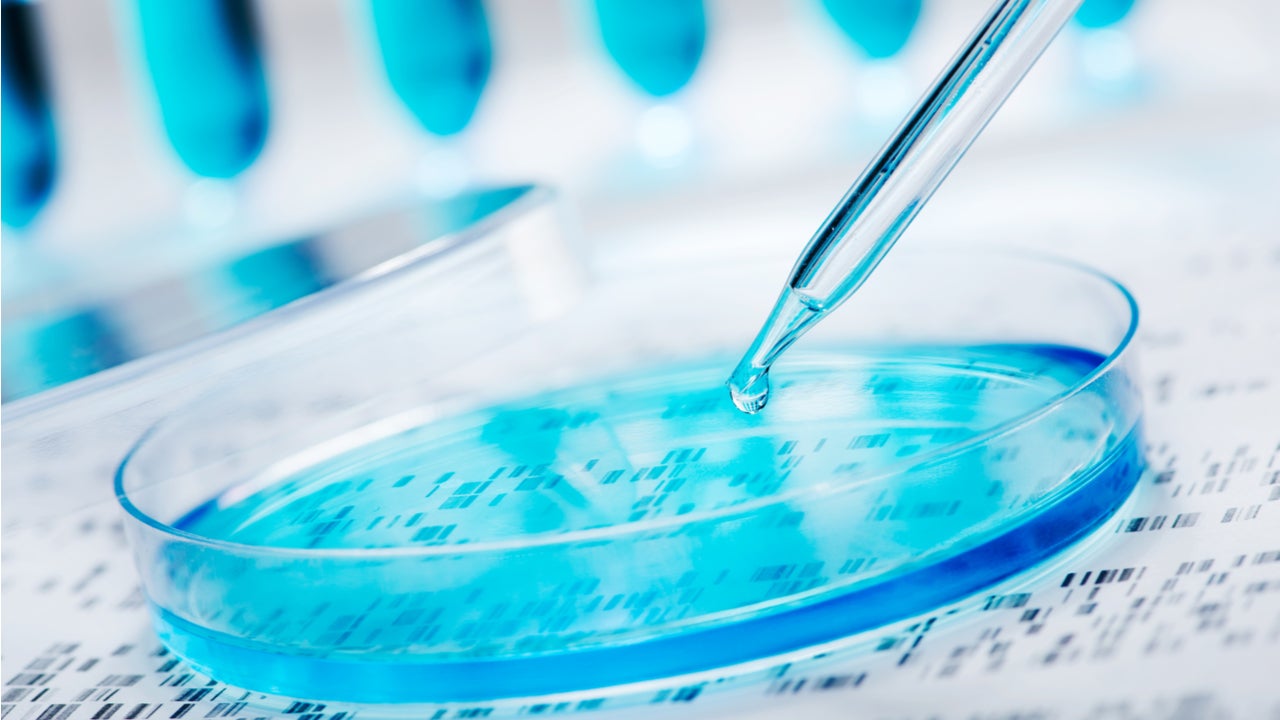Genetic tests have traditionally been ordered and interpreted in a clinical or medical research setting. However, the past decade has witnessed a tremendous growth in direct-to-consumer genetic tests (DTC-GT) that provide consumers with the opportunity to learn about their genetic profiles without the direct involvement of a healthcare provider.
Listed below are the key direct-to-consumer genetic testing trends impacting the Genomics industry, as identified by GlobalData.
Switch from using the Illumina OmniExpress chip to a customised Illumina global screening array (GSA) microarray
One of the most popular SNP-BeadArray devices previously utilised by direct-to-consumer genetic testing companies is the Illumina OmniExpress chip. This product was employed by 23andMe, Ancestry.com, MyHeritage, and FamilyTreeDNA. In 2017, 23andMe switched from using the Illumina OmniExpress chip to a customised Illumina Global Screening Array (GSA) microarray.
More recently, MyHeritage, and FamilyTreeDNA also switched to using the newer GSA product. It should be noted that MyHeritage DNA samples are processed in the FamilyTreeDNA laboratory, implying that the two companies are linked in terms of the underlying technology.
Sources indicate that Illumina intends to discontinue its OmniExpress chip, in favour of the GSA product. As such, companies such as Ancestry.com which continues to use this device will be forced to switch to the GSA, purchase Thermo Fisher Scientific products, or adopt next-generation sequencing technology.
Shift from SNP BeadArray chips to next-generation sequencing
It is expected that next-generation sequencing will eventually surpass SNP-BeadArray chips as the major technique used for a direct-to-consumer genetic testing. A major factor determining this shift will be the increasing affordability of next-generation sequencing reagents.

US Tariffs are shifting - will you react or anticipate?
Don’t let policy changes catch you off guard. Stay proactive with real-time data and expert analysis.
By GlobalDataCosts associated with next-generation sequencing have fallen dramatically over the last decade. Major manufacturers such as Illumina have publicly declared their intent to drive the costs of next-generation sequencing down to $100 per genome, and continue to work towards this goal.
Mergers and acquisitions (M&A)
While plenty of small-scale acquisitions took place between 2019 and 2020, several high-profile acquisitions have in contrast failed to close; successful acquisitions of which would have significantly influenced the genomics landscape. For example, Illumina had agreed to purchase Pacific Biosciences for $1.2bn in late 2018, with the acquisition expected to close by the same time in the following year. However, earlier in 2020, it was jointly announced that the deal was abandoned, citing heightened scrutiny by the Federal Trade Commission (FTC) of the US and the Competition and Markets Authority (CMA) of the UK.
Another highlight in 2020 was the bid by Thermo Fisher Scientific to acquire Qiagen, both giants within the technology value chain owing to their advancements in next-generation sequencing capabilities. The initial transaction value of approximately $11.5bn had been increased by a billion after further negotiations stemming from the effects of the Covid-19 pandemic on the market.
Despite the revised offer, Qiagen shareholders voted to decline the acquisition. While both companies maintain diverse portfolios beyond genomics, the successful acquisition of Qiagen would not only have marked it as the largest within this market, but also among the top five across the entire medical technology (MedTech) industry.
The pace of M&A seems to be accelerating in 2021. This is despite the recent waning sales of DTC genetic testing kits, and consumer privacy issues remaining among the forefront of issues.
Role of social media
Many people use online environments to discuss and share various aspects of their daily lives. The sharing of DTC-GT results has increased in the past few years with users typically sharing ancestral background results.
A study investigating DTC-GT user experiences via online discussions found that consumers who disclosed their experience on social media site Reddit centred their discussion on kinship, inquiries or updates on testing progress, ancestral origin, and intent to send raw DNA data to third parties for health risk interpretations. In addition, the study found that DTC-GT consumer’s purchase behaviours are associated with societal events.
Privacy and security concerns
A new powerful use of DTC genetic testing data is the identification and surveillance of persons of interest. In 2018, a suspect in the Golden State Killer murder cases was identified by use of DTC genetic testing information, 30 years after the last known crime was committed. Public controversy or mistrust in DTC-GT companies has therefore surfaced and continues to resurface because DTC-GT companies are demonstrating their ability and willingness to exchange consumer information with third parties.
Recent studies of companies offering DTC-GT testing demonstrate that their privacy policies often fail to meet transparency guidelines concerning privacy and secondary use.
Result accuracy
The results of DTC genotyping should be clearly communicated to the consumer; in particular, clear guidance should be given regarding what these tests indicate about their illness or health and what they cannot show, with special emphasis on the fact that these tests cannot be a diagnosis of disease.
Consumers may take decisions on their own based on inaccurate or non-deterministic DTC results, and may even take actions that can damage their health without appropriate consultation with clinicians. DTC companies should therefore inform consumers about the limitations of the test results and encourage consumers to consult with clinicians before taking any action.
This is an edited extract from the Direct-to-Consumer Genetic Tests – Thematic Research report produced by GlobalData Thematic Research.




